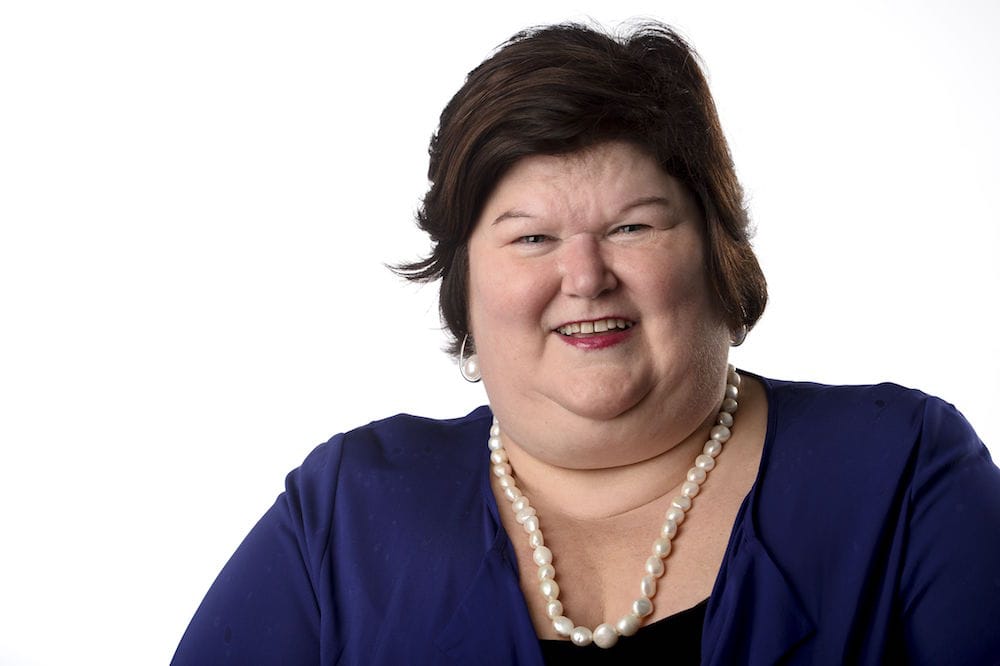The tremendous innovations that lie ahead in medical care have presented a huge challenge for the Belgian government: How to provide affordable care for the patient when dealing with a very limited public budget? Realizing that neither industry nor the government alone can quickly improve access to best-in-class drugs, the cabinet of Maggie De Block, the Belgian Minister of Social Affairs and Health, has taken a big step toward reforming the Belgian healthcare sector.
By setting up a “Pact for the Future” with the Belgian pharma sector in 2015, the Belgian government has allied itself with industry to achieve a common goal: getting medical innovation and care to the patient as fast as possible while keeping it affordable.
The cheaper, the better
Providing affordable and effective drugs to patients is a priority. To achieve this goal, the government is investing in a strategy to reduce the prices of off-patent drugs. This means that as soon as the patent of a marketed medicine expires, its price will be steeply reduced (up to 60 percent). This allows patients to have access to their usual drugs at a much lower price, whereas the savings generated in the budget can be used to reimburse biotech and pharma for the development of innovative healthcare products.
We want to give the patient access to the best healthcare, to the most effective drugs that are available today.
The system of lowering the price of older medicines appears to work well. So far, the government has saved 350 million euro from off-patent drugs and reinvested that money into innovation, ensuring that the latest treatments are available to Belgian patients.
Hand in hand for orphan diseases – faster access to bigger markets
The government is also giving particular attention to people with rare diseases. Since the end of 2015, the Benelux has been jointly negotiating the prices and reimbursement of orphan drugs with the pharma sector. Until recently, each country made separate agreements with pharmaceutical companies, but now, as a union, the Benelux countries represent more patients and can create the necessary conditions to cut a deal on the price. The three countries also aim to exchange data, share patient registries and coordinate assessment practices.
A mathematical model enables us to forecast expenses, to estimate the amount of jobs that will be created and to calculate all the savings from the foreseen reforms.
“For the first time, three countries are negotiating together about a drug,” emphasizes Brieuc Van Damme, the deputy chief of staff for Belgium’s Minister of Public Health and Social Affairs, Maggie De Block. “This will be advantageous for smaller, innovative, dynamic biotech companies, because now, by submitting one dossier, they immediately get access to a much larger patient population.”
Remaining number one in clinical trials
Every year, more than 170,000 Belgian patients receive early access to innovative medicines by participating in clinical trials. Van Damme confirms that one of the goals of the current healthcare policy is to remain at the top of clinical trial development in Europe and the world.
Also, the procedure for a company to get reimbursed for children’s medication has been simplified. The previously cumbersome process is now being replaced with a much more efficient “pediatric fast track” policy. Drugs for pediatric indications will automatically be reimbursed at the same level as drugs for adult indications, as soon as they are registered at the European Medicines Agency. This will encourage companies to develop pediatric clinical studies and will eventually result in children getting faster access to the latest trial therapies.
Transparency is key
The Pact for the Future also envisions a new ambitious deontological framework for the healthcare sector. To improve transparency, competition and ethics, the Ministry is setting up a centralized portal that will host all results from clinical trials.
In parallel, a publically accessible central transparency platform, betransparent.be, has been developed by industry in close collaboration with healthcare professionals. A registry has been created that contains financial transfers from industry to professionals in the healthcare sector. At this point, the platform is used by pharma.be, beMedTech, FeBelGen, BACHI, associations of physicians, pharmacists, dentists, physiotherapists and others. The first publication concerning money donated in 2015 was made publicly available in June 2016.
The establishment of electronic medical records for every patient will also further the cause of transparency in healthcare. From now on, clinicians will be obliged to electronically enter the medical data of their patients, ensuring continuity of care. Patient data may be shared with other healthcare providers upon informed consent.
Our aim is to make sure that everybody, with full transparency, knows what to expect in the coming years.
“What ties everything together is budget stability and predictability,” Van Damme concludes. “The vision of the De Block cabinet for the next four years is based on a very thorough mathematical model. This model enables us to forecast expenses, to estimate the amount of jobs that will be created and to calculate all the savings from the foreseen reforms. It gives us certainty and limits surprises on the road. Our aim is to make sure that everybody, with full transparency, knows what to expect in the coming years. This is, in a nutshell, the Pact for the Future.”
This article is a report of the keynote presentation by Brieuc Van Damme, deputy chief of staff of Belgium’s Minister of Public Health and Social Affairs, at Knowledge for Growth, May 26, 2016.


